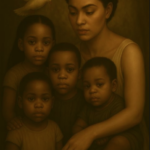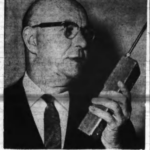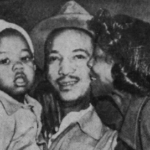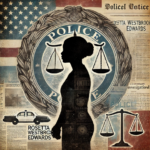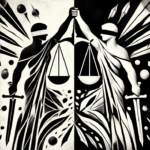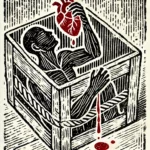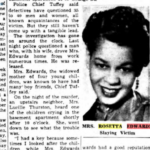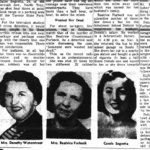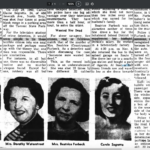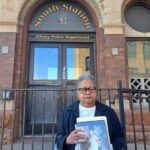Why do an Aunt Pie documentary film, and why now?
That’s the question asked by an Aunt yesterday. I think this was a very smart question. I also think that myself as I assemble data, conduct interviews and coordinate a plan with my sisters, my Aunt DD and Cousins. I can’t speak for such a wide variety of people but I can tell you my reasons. Why something that happened so long ago is important to us and relevant to our country as a whole.
Why are we making a documentary about Aunt Pie now? It’s a question that gets to the heart of why this story matters, not just for our family, but for the country.
Here are the reasons why:
Media bias: The media stories about Aunt Pie’s case were inaccurate and biased, perpetuating harmful stereotypes about Black people. (Source: “The Impact of Media Bias on Criminal Justice” by the National Association of Criminal Defense Lawyers)
Systemic racism: Our family couldn’t demand justice or a thorough investigation because of the systemic racism that devalued Black lives. (Source: “The Legacy of Racial Disparities in the Criminal Justice System” by the NAACP)
Law enforcement’s lack of accountability: Law enforcement still doesn’t value Black lives equally, as evident in the ongoing disparities in policing and sentencing. (Source: “Police Use of Force by the Numbers” by the Washington Post)
Intergenerational trauma: The trauma was too great to talk about, and it affected our family for generations. Research shows that unresolved trauma can be passed down through generations. (Source: “Intergenerational Trauma” by the National Center for Biotechnology Information)
Erasure of Black stories: Our family’s story was silenced, and it’s a common experience for Black families. A study found that only 10% of news stories about missing persons feature Black people, despite making up 40% of missing persons cases. (Source: “Missing White Woman Syndrome” by the Columbia Journalism Review)
Lack of progress: We assumed we’d progressed from such dark times, but the data shows otherwise. BIPOC communities still face disproportionate violence and marginalization. (Source: “Crime and Justice in the United States” by the Bureau of Justice Statistics)
Caregiving and career sacrifices: I put my career on hold to care for my father, a common experience for many caregivers, especially women. (Source: “Caregiving in the United States” by the National Alliance for Caregiving)
Fallout and legacy: The trauma and fallout from Aunt Pie’s case affected our family for generations, and it’s time to break the silence and create a legacy of empowerment.
Healing and recovery: Our healing takes time, and each of us is on our own path. Research shows that storytelling and sharing experiences can be a powerful tool for healing. (Source: “The Power of Storytelling” by the National Center for PTSD)
Elder wisdom: Our elders are ready to share their stories and leave a legacy that empowers us to tell our truth.
Breaking the silence: It’s time for us to tell our stories and help other victims of violent crimes who were silenced. By sharing our truth, we can create a more just and equitable society.
This documentary is not just about our family’s story; it’s about the systemic issues that perpetuate violence and silence in BIPOC communities. It’s time to break the silence and tell our truth.

